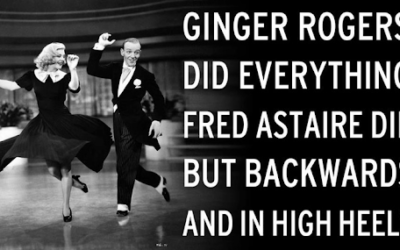“These young whippersnappers, today!” Can’t you just hear it? That old geezer whining about the young upstarts? Multigenerational leadership challenges between younger and older workers are as predictable as the sun.
When I was young I just remember trying to survive when I came into the work world. Maybe my elders complained about me, but I don’t recall. By the time the millennial generation hit their internships I reliably heard complaints about entitlement, demands for flexibility and communications challenges. Fast forward a decade and Gen Z is challenging us with whole new levels of (over?) confidence, pronoun sensitivity and a desire to shape their work to their lives, or leave.
Multigenerational leadership experts have long sought a simple solution for the inevitable irritations of working with people younger and older than ourselves. When young people show up in (to our way of thinking) inappropriate clothing, using weird technology or indecipherable language, it’s everyone else’s first instinct to (1) roll their eyes and (2) try to bring them into the normative culture.
In part, this latter instinct is appropriate. Ever since the demise of the apprenticeship employment model, the transition from youth to working adult has been awkward. It puts pressure on older workers to initiate and train younger workers about how to survive, thrive and succeed in the culture of work.
But as recognition of reverse mentoring demonstrates, older workers have at least as much to learn from younger workers if they have the right mindset.
Inclusive Leadership: A Benefit of Managing Across Generations
A lot of research has found that it’s a slippery slope to make assumptions about generations and what they want in the workforce. In essence, generational stereotypes are like any other kind of stereotype–limiting. Stereotyping too often leads us into unfounded assumptions about each other. In fact, when it comes to core values and the need for flexibility, recognition and autonomy, humans of any age or demographic are more similar than different.
Some guides to reverse mentoring point out that older leaders can learn a lot about technology from their younger employees, which may be true, but such reductive suggestions are a missed opportunity compared to managing other generations with the intention to learn what drives them.
What is your intention when you’re managing someone? You probably have a business outcome in mind; some work product that needs to be delivered, or a task that needs to be performed. Try adding a curiosity intention to your work with them, though, and you can find yourself building deeper relationships, motivating them more fully and learning more about how to lead across all kinds of cultural differences.
A curiosity intention is simply the desire to understand someone more deeply, without judging them. Premature judgment is a major inhibitor to learning. The judgments we form when adhering to stereotypes tend to shut down our natural curiosity to better understand people and cultures that are different from our own. This is true for multigenerational leadership as well as for multiracial, multiethnic, gender diverse and socioeconomically diverse populations as well.
Use generational differences to build your inclusive leadership lens and see what more you can learn.
A Tip for Multigenerational Leadership and Mentoring
One factor to be aware of when managing across generational (and other) divides is that people tend to filter themselves differently when interacting with people less like them. This is universal human behavior that can be as simple as showing deference or as extreme as code-switching, so if you sense that someone is holding back, don’t take it personally. However, one thing that will draw most people out, regardless of the differences between you, is genuine interest and curiosity.
So when you have the opportunity to lead others, in different generations or other demographic categories, ask them open-minded questions about their experience, attitudes, ideas etc. And–here’s the important part–be genuinely curious about their responses. Put judgment aside for a minute or three (that’s often all it takes) and just listen, following up with more questions. At a minimum this will help you give them advice tailored to their situation, but it also holds the promise of helping you make a deeper connection and expand your own worldview.
The next time you find yourself tempted to put on your geezer glasses and roll your eyes at the younger generation, stop and get curious about how to develop a more inclusive, multigenerational leadership style. Ask questions and listen to the answers with curiosity instead of judgment. See what you learn.
Free Advice for Mentoring Women
Tropes and truths to help mentors and proteges navigate workplace biases and outdated advice.







